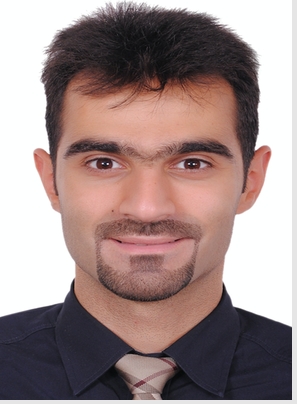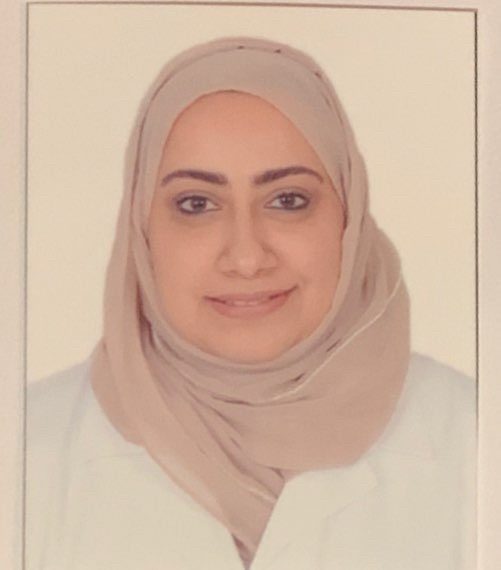On behalf of 11th International Conference on Surgery, we are delighted to welcome you to join the SURGERY CONGRESS 2022 scheduled on September 01-02, 2022 in Ireland, Dublin. Which is an exceptional gathering for the worldwide prominent scholastics in the field of Surgery where Directors, Scientists, Professors, Research scholars, Postdocs, Academic Staff are about to share their research work and acquiesce new emerging technological trends in the conference areas.
SURGERY CONGRESS 2022 is an International platform to adverse and study about the early detection as well as treatment care based on Professional standards, and intense research to Share complete Knowledge. The conference contains significant international experts in Doctors, hospitals specialists, research scholars and general practitioners, Student Delegates and Exhibitors form all over the world to our Conference with the theme “Igniting New Frontiers in Surgery’’. SURGERY CONGRESS 2022 will be featuring oral presentations, poster presentations, keynote talks, workshops and many more.
The conference will focus on Head and Brain Surgery, Lung Surgery, Liver Surgery, Bladder Surgery, Kidney Surgery, Heart Surgery, Gynecologic Surgery, Gastrointestinal Surgery, Eye surgery and Neck Surgery.
Scope and Importance:
SURGERY CONGRESS 2022 aims to order driving scholastic researchers, specialists and exploration researchers to trade and share their encounters and examination results on all parts of SURGERY. It additionally presents a top-quality interdisciplinary platform for researchers, practitioners and educators to give and speak the latest innovations, trends, and issues additionally as realistic demanding situations encountered and solutions adopted within the fields of SURGERY.
Who can attend?s
SURGERY CONGRESS 2022, brings together individuals who have an interest in different fields of SURGERY. Doctor’s, Professors, Surgical sciences, Surgeons, Scientists, Researchers, Nurses, doctors, educators, pharmacists, and other Surgical professionals from practice. It is a forum to explore problems with mutual concern also as exchange knowledge, share evidence, ideas, and generate solutions
Why to attend?
SURGERY CONGRESS 2022 is an opportunity to meet others within specialty to network and to learn the latest clinical information. It is an opportunity to get knowledge From Experience Doctor’s Professors, Scientist. I’ve always embraced the opportunity to attend Surgery conferences and have made a point to encourage others to attend whenever the opportunity arises.
They are interactive offerings that offer case-primarily based totally presentations, on line reviews, and stay conversations with key opinion leaders that consist of beneficial recommendation in your normal scientific practice.
Target Audience:
Experts and Specialists in the field of Head and Brain Surgery, Lung Surgery, Liver Surgery, Bladder Surgery, Kidney Surgery, Heart Surgery, Gynecologic Surgery, Gastrointestinal Surgery, Eye surgery and Neck Surgery. Young and brilliant researchers, business delegates | Directors of Association and Societies.
Session-01 Head and Brain Surgery:
The term "Brain surgery" refers to a variety of medical operations that involve fixing certain structural defects of the brain. Head&Brain surgery is a difficult procedure that varies depending on the problem being addressed. Head surgery is one of the most dangerous medical procedures, with a variety of hazards ranging from minor to life-threatening.
The decision to conduct open brain surgery is based on the severity of the patient's illness. Often, less critical diseases or disorders can often represent a serious life threat due to their side effects. In such situations, the head operation needs to be performed to correct the physical deformities of the brain and the surrounding structures.
There are different types of head surgery depending on the area of the brain and the ailment being addressed.
-
Craniotomy
-
Craniectomy
-
Biopsy
-
Endonasal Endoscopic Surgery
-
Neuroendoscopy
-
Deep Brain Stimulation
Session-02 Lung Surgery
Lung surgery refers to the removal of lung tissue to repair damage, perform a biopsy, halt malignant growth, or remove superfluous material such as fluid build-up or blood in the lungs. Lung surgery is occasionally used to alleviate the consequences of other treatments, such as when blood must be taken from the organ during another procedure.
WHAT IS THE PURPOSE OF LUNG SURGERY?
Lung surgery can be done for a variety of reasons: -to perform a biopsy of lung tissue in case any abnormal growth is suspected -to drain fluid build-up from the chest in a lung surgery procedure called pleurodesis -to remove a portion of the lung if it has been infected by cancer; the lung operation can be performed to remove a portion of the lung.
-
Bronchiectasis
-
Interstitial lung disease
-
Lung cancer
-
Lung nodules
-
Blebs
-
Collapsed lung
-
Emphysema
-
Thoracotomy
-
Video-assisted Thoracoscopy Surgery
-
Pneumonectomy
-
Lobectomy
-
Wedge resectioning
-
Segmentomy
-
Sleeve resectioning
-
Lymphadenectomy
Session-03 Liver Surgery
The surgical removal of all or portion of the liver is known as a liver resection. It's also known as a full or partial hepatectomy. When a damaged liver from a deceased donor is removed after a transplant, a total liver resection is performed (cadaver).
There are different types of Liver surgery depending on the area of the brain and the ailment being addressed.
-
Liver transplant
-
Partial hepatectomy
Session-04 Bladder Surgery
Bladder Surgery is a procedure that involves the removal of the urinary bladder. The prostate and seminal vesicles are usually removed as well when the entire bladder is removed (radical cystectomy). The uterus, ovaries, and a portion of the vaginal wall are generally removed during a radical cystectomy in women.
Types of Bladder Surgery
-
Bladder augmentation surgery
-
Urinary diversion
-
Transurethral resection (TUR)
-
Cystectomy
-
Neobladder reconstruction surgery
-
Bladder suspension surgery
Session-05 Kidney Surgery
It is also called Radical Nephrectomy. The surgeon removes the entire kidney, the fatty tissues around the kidney, and a part of the tube connecting the kidney to the bladder. If a tumor is adjacent to or includes the adrenal gland (which lies at top of the kidney), the surgeon may remove it.
Types of Kidney Surgery:
-
Kidney Removal Surgery
-
Simple nephrectomy or open kidney removal
-
Partial Nephrectomy
-
Radical Nephrectomy or open kidney removal.
-
Laparoscopic kidney removal
-
Surgery for Kidney Cancer
-
Kidney transplant
-
Surgery for Kidney Stones
Session-06 Heart Surgery
The term "heart surgery" refers to the repair or replacement of heart valves that control blood flow through the heart, as well as the repair of abnormal or damaged cardiac components. Implant Medical devices that control heartbeat or support cardiac function and blood flow and to Replace a damaged heart with a healthy heart from a donor.
There are different types of heart surgery depending on the area of the heart affected
-
Angioplasty
-
Artificial Heart Valve Surgery
-
Atherectomy
-
Bypass Surgery
-
Cardiomyoplasty
-
Minimally Invasive Heart Surgery
-
Radiofrequency Ablation
-
Transmyocardial Revascularization
Session-07 Gynecologic Surgery
Gynecologic surgery includes procedures on the vaginal, cervix, uterus, fallopian tubes, and ovaries, among other parts of a woman's reproductive system. Gynecologic surgeons are frequently called upon to perform surgeries on a woman's urinary tract, including the bladder.
There are a variety of reasons why a woman may require gynecological surgery. Endometriosis, fibroids (benign tumors), ovarian cysts, malignancy, chronic pelvic pain, pelvic inflammatory disease, uterine prolapse, or irregular bleeding may require therapy. Gynecology surgery can potentially be used as a long-term contraceptive.. Gynecologic Surgery can alter sexual function directly by affecting the anatomy of the female genital tract.
-
Adhesiolysis
-
Cervical (Cone) Biopsy
-
Colporrhaphy
-
Colposcopy.
-
Dilation and Curettage (D&C)
-
Endometrial Ablation.
-
Endometrial or Uterine Biopsy.
-
Fluid-Contrast Ultrasound (FCUS)
Session-08 Gastrointestinal Surgery
Gastrointestinal surgery is a type of surgery that treats problems of the digestive system. The esophagus (ee-sof-uh-gus), stomach, small intestine, large intestine, rectum, liver, gallbladder, and pancreas are included.
-
Colectomy
-
Colostomy
-
Endoscopic Surgery
-
Hemorrhoidectomy
-
Ileal Pouch Anal Anastomosis
-
Inflammatory Bowel Disease Surgery
-
Internal Sphincterotomy
-
Rectopexy
Session-09 Opthalamology and Vision Care
Eye surgery, often called ocular surgery, is surgery done on the eye or its adnexa by an ophthalmologist. The eye is a sensitive organ that requires special attention before, during, and after surgery to avoid further injury.
-
Blepharoplasty
-
Cataract surgery
-
Corneal transplant
-
Glaucoma surgeries
-
LASIK
-
Retina surgeries
-
Eye muscle surgery
Session-10 Neck Surgery
Neck Surgery often Known as Laminectomy. The purpose of it is to relieve pressure on your spinal cord or nerves. Neck pain is a frequent ailment that can be caused by a variety of factors. Although surgery is an option for long-term neck pain, it is not always the best option.
-
Anterior cervical discectomy and fusion
-
Cervical artificial disc replacement
-
Posterior cervical laminectomy
-
Posterior cervical foraminotomy
-
Anterior cervical corpectomy



















